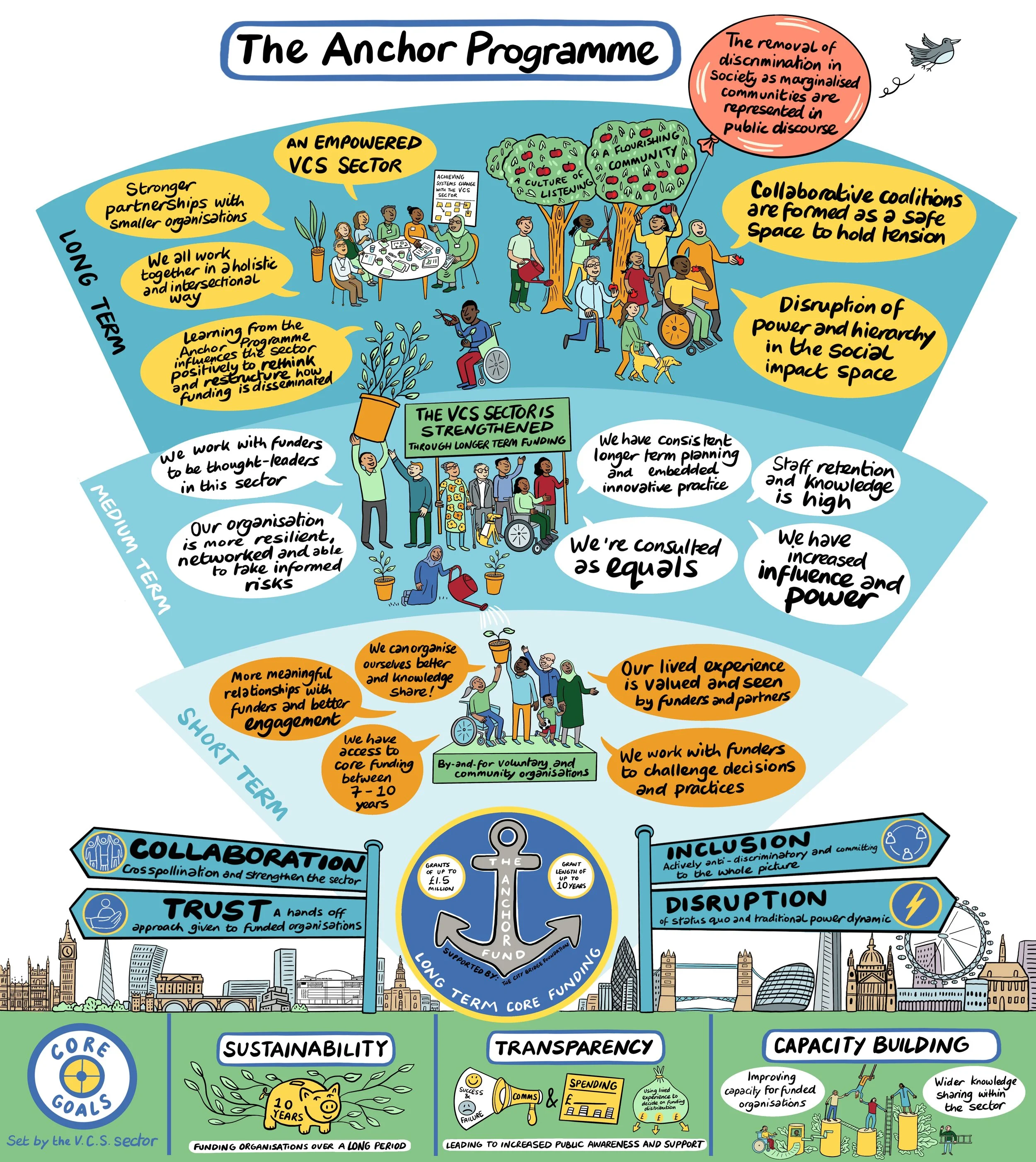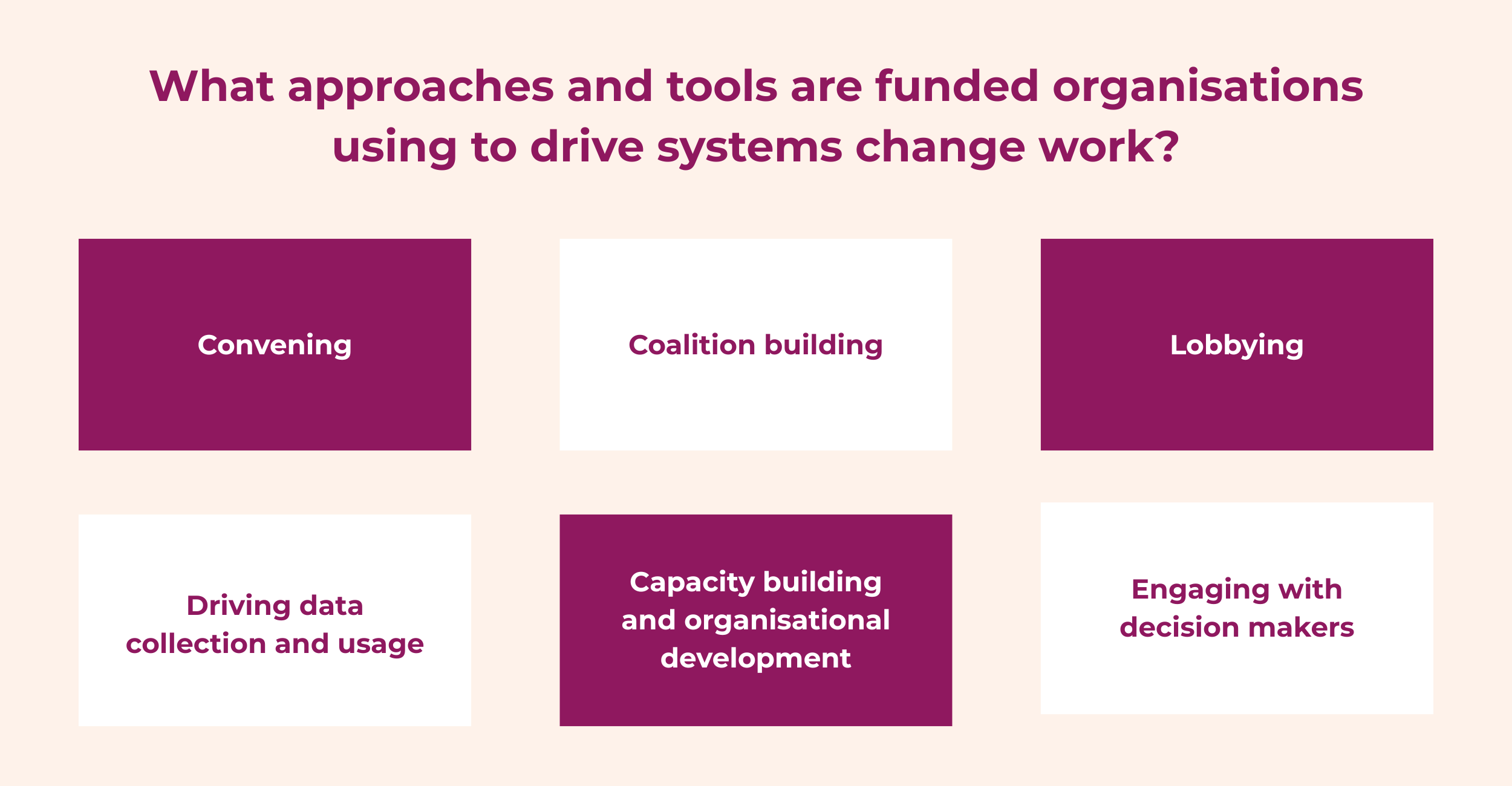Driving systems change: Disrupting traditional funding with the Anchor Programme
We have been fortunate enough at TSIP to be the learning partner for City Bridge Foundation’s Anchor Programme for almost two years. In this role, we regularly convene funded organisations to share best practices, learn from innovation, and harness their collective power to drive systems change.
Whilst funded organisations across the programme have several key commonalities in that they are all ‘led by-and for’ organisations, they are all driving systems change and they are all second-tier infrastructure organisations - we quickly understood that there are several key differences between them. The organisations are diverse by nature, structured differently and, most importantly, they are focusing on disrupting different elements of the system they work in. Despite these differences - through collective convening via the learning programme, the funded organisations and funding managers have been able to collectively carve out a shared vision and shared goal for what they hope this innovative fund can achieve.
See our Theory of Change below:
This nested Theory of Change details, and visually illustrates, three levels of impact the fund aims to achieve: for funded organisations, for the Voluntary and Community Sector (VCS) more widely, and ultimately for society as a whole. A nested theory of change is a multi-layered approach that highlights different levels of impact for understanding and planning for social change.
The vision above is ambitious - and we acknowledge the many structural and systemic barriers that currently hinder progress towards many of these outcomes. Nonetheless, the structure of the Anchor Programme is designed to begin disrupting key barriers in the funding landscape - it centres co-design, core and long term funding, with flexible outcome reporting to challenge the limitations of traditional short term project related funding with stringent evaluation criteria. It has been wonderful to go on this journey with City Bridge Foundation as they redesign their funding approaches.
As we continue this reciprocal learning process - we are now turning our attention to understanding and building the tools that organisations need to drive systemic change. This year we convened as a cohort and began to map and identify which tools are currently being used across the organisations:
Lived experience has been used across these tools as a driver to shift mindsets and challenge traditional structures that exclude and disempower communities they work with. Rather than weaponising identity, lived experiences have been valued and amplified in this process with a core focus on the intersectional needs of its service users. In just one year of the Anchor Programme, we are seeing an increase in groups collaborating to pursue solidarity in the removal of discrimination in society.
Looking forward, we will be working together to understand more about the levers and tools that we have individually and collectively to reach the outcomes in our Theory of Change and drive systemic change.
If you're a funder interested in how City Bridge Foundation is transforming funding practices, you can explore the story on their website: The Story of the Anchor Programme.’ To learn more about TSIP’s approach to learning and systems change, feel free to get in touch — we’d love to connect with you.
If you are an organisation working in this space, what are the tools that you are using to drive systemic change - does the vision above align with your goals?
A special mention to the incredible first round of funded organisations on the Anchor Programme, and the work they do:
End Violence Against Women Coalition
Muslim Charities Forum
Interlink Foundation
Southall Community Alliance
Imkaan
LGBT Consortium
Spectra CIC
Action for Race Equality
Alliance for Inclusive Education
HEAR Equality and Human Rights Network
Inclusion Barnet
Migrants Rights Network
Written by Georgina Hammerton and Nairat Ali.


